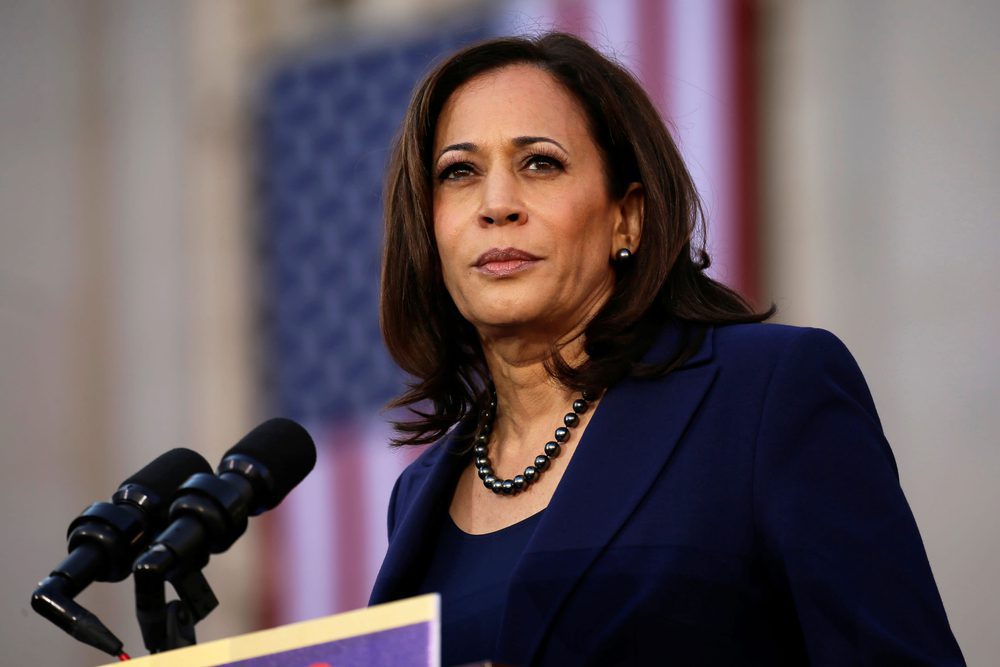The United States’ relationship with Israel has been shaped by various U.S. administrations, each bringing its own approach to the region’s delicate dynamics. As Vice President Kamala Harris hinted at a potential shift in U.S. foreign policy during her “60 Minutes” interview, the context of former U.S. presidents’ policies on Israel becomes critical to understanding the implications of her remarks.
Historical context: U.S. presidents and Israel
Since the establishment of Israel in 1948, U.S. presidents from both political parties have largely maintained a robust alliance with Israel, grounded in shared democratic values, strategic interests in the Middle East and mutual security concerns. This alliance was solidified during President Harry S. Truman’s administration, who recognized Israel just minutes after its declaration of independence.
President Lyndon B. Johnson gave assistance to Israel “years preceding the Six-Day War,” according to CNN. Presidents Richard Nixon and Gerald Ford navigated the aftermath of the 1973 Yom Kippur War, balancing U.S. support with diplomacy aimed at reducing tensions with the Arab world. This was also the first time President Joe Biden dealt with Middle Eastern policies, the news outlet reported.
In the late 20th century, President Jimmy Carter brokered the Camp David Accords in 1978, the first major peace agreement between Israel and an Arab state, namely Egypt. However, one of the net results of the agreement is both countries protecting their borders on the Gaza Strip, where about two million Palestinians are trapped, CNN continued. President Ronald Reagan’s administration emphasized closer ties with Israel — a net result of which became the country’s involvement with the Iran-Contra scandal. President George H.W. Bush tread a more delicate balance than Reagan; Bush’s administration also pushed Israel on issues like settlements in the West Bank, signaling early tensions.
During President Bill Clinton’s tenure, the U.S. played a central role in the Oslo Accords, aimed at achieving a two-state solution between Israel and Palestine. Clinton’s engagement fostered a vision of peace, but the process stalled amid growing violence.
Post-9/11: Shifts in policy
The 9/11 attacks marked a turning point in U.S. foreign policy, particularly under President George W. Bush, whose administration strengthened U.S.-Israel military ties in the broader context of the War on Terror. However, Bush’s “Roadmap for Peace” also sought to revive efforts for a Palestinian state, albeit with limited success.
President Barack Obama, while committed to Israel’s security, also pushed for a halt to Israeli settlements and advocated for a two-state solution. His administration’s negotiation of the Iran nuclear deal in 2015 strained U.S.-Israel relations, as Israeli Prime Minister Benjamin Netanyahu was a vocal critic of the agreement. Nonetheless, military aid under Obama remained robust.
In contrast, President Donald Trump’s policies represented a sharp departure. His administration recognized Jerusalem as Israel’s capital in 2017 and moved the U.S. embassy there, a controversial decision that broke with decades of U.S. diplomacy. Trump also brokered the Abraham Accords, normalizing relations between Israel and several Arab states, further deepening ties with Netanyahu’s government. However, Trump faced criticism for sidelining Palestinian interests.
Harris’s remarks in context
Against this backdrop, Vice President Harris’s comments signal a potential departure from the more unconditional support of recent Republican administrations. Her emphasis on diplomacy and humanitarian aid reflects an approach closer to Obama’s, one that seeks balance in the U.S.-Israel relationship while addressing the humanitarian crisis in Gaza.
Her responses suggest that while she remains committed to Israel’s security, she may advocate for a more conditional alliance, pushing Israel on issues like settlements and its military actions in Gaza. This could signal a return to a policy that emphasizes both Israel’s right to defend itself and the necessity of addressing Palestinian suffering, reminiscent of earlier Democratic administrations under Carter, Clinton and Obama.
Potential policy shifts
Should Harris take office, her administration could potentially reintroduce a greater focus on a two-state solution and a renewed diplomatic push for peace in the region. Her willingness to listen to Palestinian communities and consider humanitarian concerns could resonate with Democratic voters, particularly younger and progressive constituencies, as well as key demographics like Black voters and Arab Americans, said The Grio.
As the Nov. 5 election approaches, Harris’s stance on Israel and Palestine could play a pivotal role in shaping her foreign policy narrative. If elected, her approach might reflect a shift from the more hardline policies of recent years, echoing past efforts to balance U.S. strategic interests with a more critical stance on Israeli policies under Netanyahu’s leadership.












